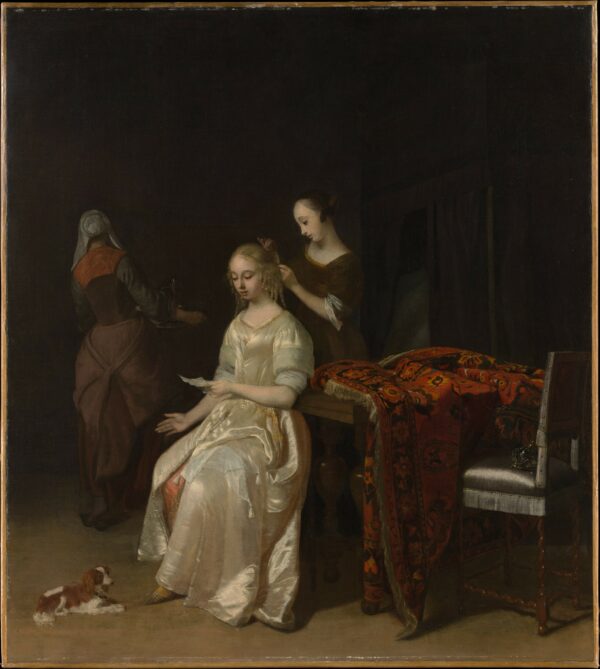Ladies and Gentlemen! Boys and Girls!
“Ladies and gentlemen! Boys and girls!”—thus the ringmaster welcomes the audience to the circus.
“Ladies and gentlemen! Boys and girls!”—is my introduction, as I hope you will indulge me one more post (this week) about manners and etiquette. I hope you won’t mind if I return to the subject from time to time. Thank you, Angela, for the suggestion that I write a book about manners for Christian homeschooling families. I am humbled and encouraged by the request. I can’t work such a book into my schedule now, but I hope it helps temporarily for me to share a couple more passages from Walter R. Houghton’s 1883 book, American Etiquette and Rules of Politeness.
One of my goals for the homeschooling of our children was that they be uniquely God’s man or God’s woman. In his general chapter on politeness and good manners, Houghton gives specific advice to the true gentleman and the true gentlewoman.
The True Gentleman
“The true gentleman will never forget that if he is bound to exercise courage and kindness in his intercourse with the world, he is doubly bound to do so in his intercourse with those who depend upon him for advice, protection and example. However high his station he does not bear an air of condescension or pride, and the humblest man feels instantly at ease in his presence; he is respectful and patient, distinguished above all things for his quick and active sympathy, his unwillingness to cause pain, his readiness to speak a pleasant word to relieve embarrassment. He is frank and cordial in his bearing toward others, and by his graceful and pleasing speech and manners he wins the respect and admiration of all with whom he comes in contact.”
The True Gentlewoman
“The true gentlewoman will show as much courtesy, and observe all the little details of politeness as unfailingly toward her parents, husband and family, or even toward her own domestics, as toward the most distinguished stranger. She is amiable. General amiability has been given as another term for politeness. An amiable person is one who is pleasing, attractive, friendly and lovable; and we consider it inconsistent to think of an amiable person being impolite.”
I am sure there are days when we would love to have our own team of “domestics,” such as some women had in the 1880s and as are depicted in this painting.

The Love Letter by Jacob Ochtervelt, early 1670s.
Courtesy of Metropolitan Museum of Art.
Gift of Mr. and Mrs. Walter Mendelsohn, 1980.
Though being kind to “domestics” may not be applicable to us today, we can substitute “domestics” with cashiers, store clerks, and others who serve us in various ways.
What better goal than to raise up true gentlemen and true gentlewomen to go out and bless their families and the world? At the root of Haughton’s advice for the gentleman and the gentlewoman was the principle of treating every person with respect. As we learn in the book of James:
My brethren, do not hold your faith
in our glorious Lord Jesus Christ
with an attitude of personal favoritism.
For if a man comes into your assembly
with a gold ring and dressed in fine clothes,
and there also comes in a poor man in dirty clothes,
and you pay special attention to the one
who is wearing the fine clothes,
and say, “You sit here in a good place,”
and you say to the poor man,
“You stand over there, or sit down by my footstool,”
have you not made distinctions among yourselves,
and become judges with evil motives?
Listen, my beloved brethren:
did not God choose the poor of this world
to be rich in faith and heirs of the kingdom
which He promised to those who love Him?
James 2:1-5

